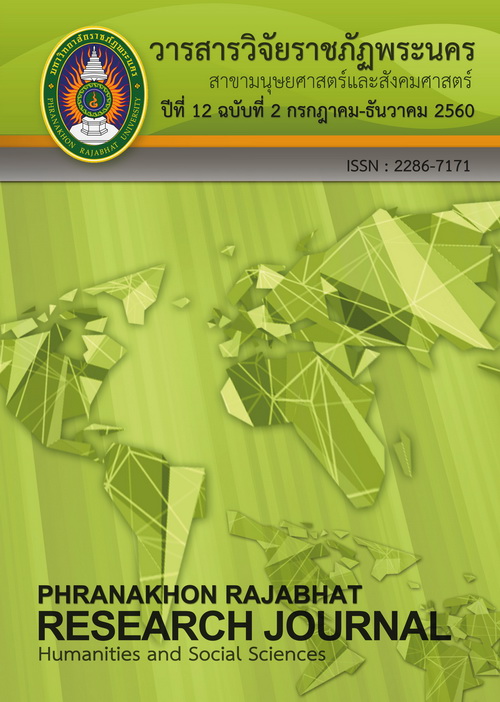THE PARADOX OF THAILAND DIGITAL ECONOMY: WILL THAI GOVERNMENT MOVE FORWARD OR STAY REMAIN?
Main Article Content
Abstract
This essay is a preview on various forms of governmental decision making by adopting public management as a strategic decision framework by Politt and Bouckaert (2000). Drawing scene setting by digital economy focusing on sharing economy in developmental states, the critical review put the combination of clientelism political and rent-seeking activity into the debate where mislead government decision making into unfairness resource distribution in market. The essay is more concreted by applying a banned of sharing urban mobility service which using the online platform in Thailand. However, there is no final position from the author.
In fact, the authors humbly leave a short reminder that any decision making should base from the public interest.
Article Details
Each publish articles were copyright by Phranakorn Rajabhat University
Any contents which appeared in each articles in the journal were authors personal opinion. It did not relate to Phranakorn Rajabhat University and other instructors in the university. Each authors would take responsibility on their articles. If there are any mistake, the authors will take responsibility themselves
References
Pacific Region. Clay Wescott. Bingley : Emerald Group Publishing.
Brinkerhoff, D.W. & Goldsmith, A.A. (2002). Clientelism, patrimonialism and democratic governance: an overview
and framework for assessment and programming. Maryland : s.n.
Cowen, T. (2009). Create your own economy: the path to prosperity in a disordered World. s.l. : Dutton.
Goldman, E. (2010). The third wave of the internet exceptionalism. [book auth.] B Szoka and A Marcus. The next
digial decade: eassays on the future of the internet. Washington, D.C. : Techfreedom.
Heimler, A. (2015). Last taxi to Europe. project-syndicate. Retrieved from https://www.project-syndicate.org/
commentary/uber-eu-protest-byalberto-heimler-2015-04.
Hyndman, N. & Liguori, M. (2016). Public sector reforms: changing contours on an NPM landscape. Financial
Accountability & Management, 32.
Koopman, C., Mitchell, M.D. & Thierer, A.D. (2015). The sharing economy and consumer protection regulation: the
case for policy change. The Journal of Business, Entrepreneurship & the Law : SSRN Electronic Journal SSRN
Journal, 2015, 8
Schedler, K. & Proeller, I. (2007). Chapter 1 public management as a cultural phenomenon. S.l. : Emerald Group
Publishing Limited.
OECD. (2015). OECD Digital Economy Outlook. Paris : S.N.
Osborne, S.P. & Brown, L. (2014). Handbook of innovation in public service. l. : Edward Elgar.
Pollitt, C & Bouckaert, G. (2000). Public management reform: a comparative analysis. Oxford : Oxford University
Press.
Pollitt, C. & Bouckaert, G. (2011). Public management reform: a comparative analysis: new public management,
governance, and the neo-Weberian state. Oxford : Oxford University Press.
Scharrer, H. (2005). The European economy after the EU enlargement. s.l. : EU Studies in Japan EU Studies in Japan.
Shark, A.R. (2015). Technology and public Management. NY: Routledge.


